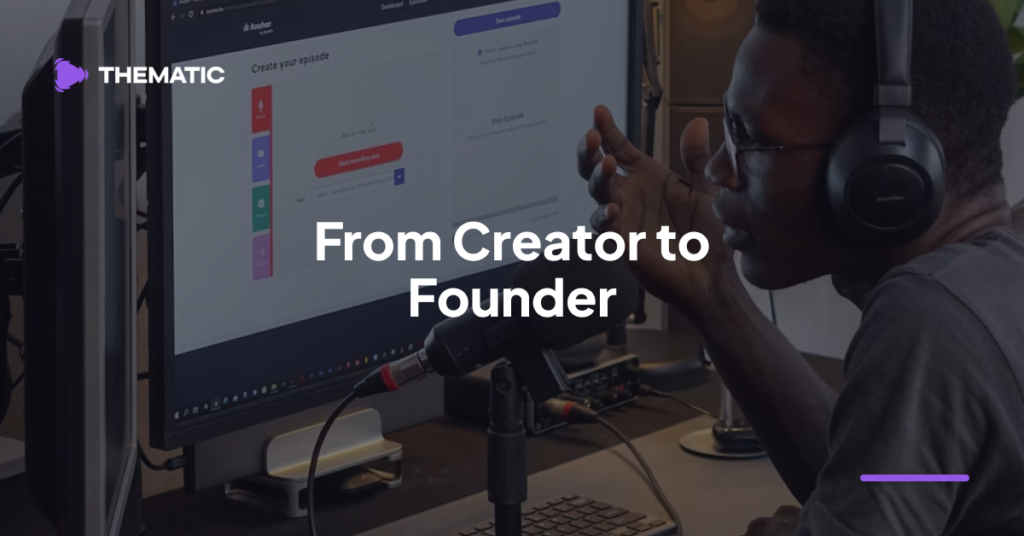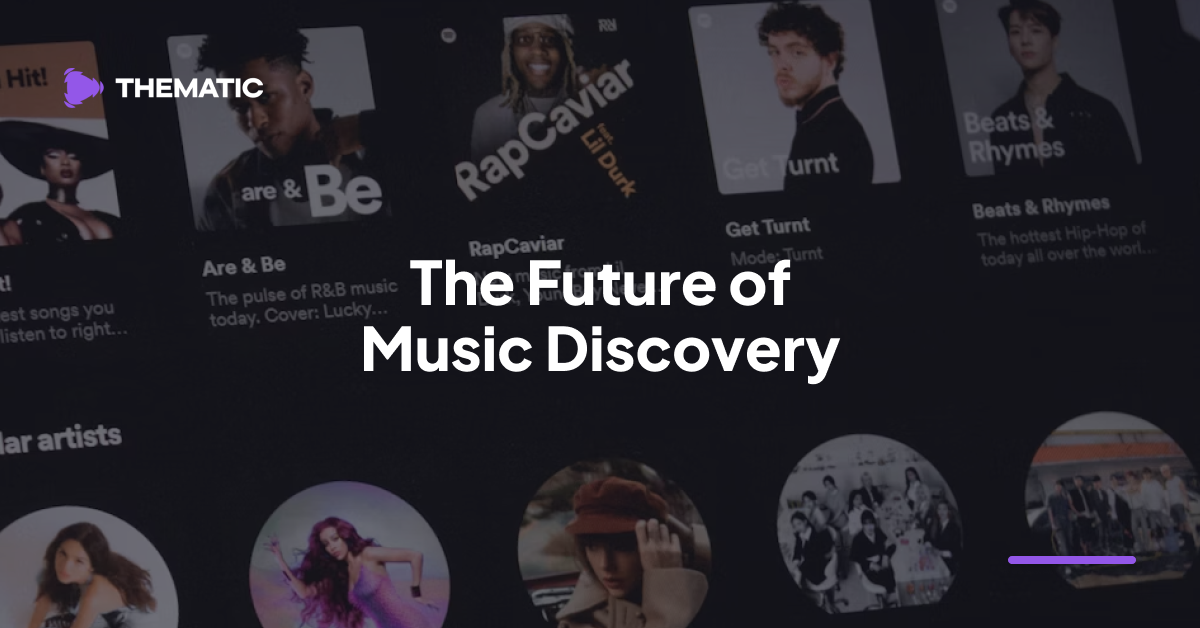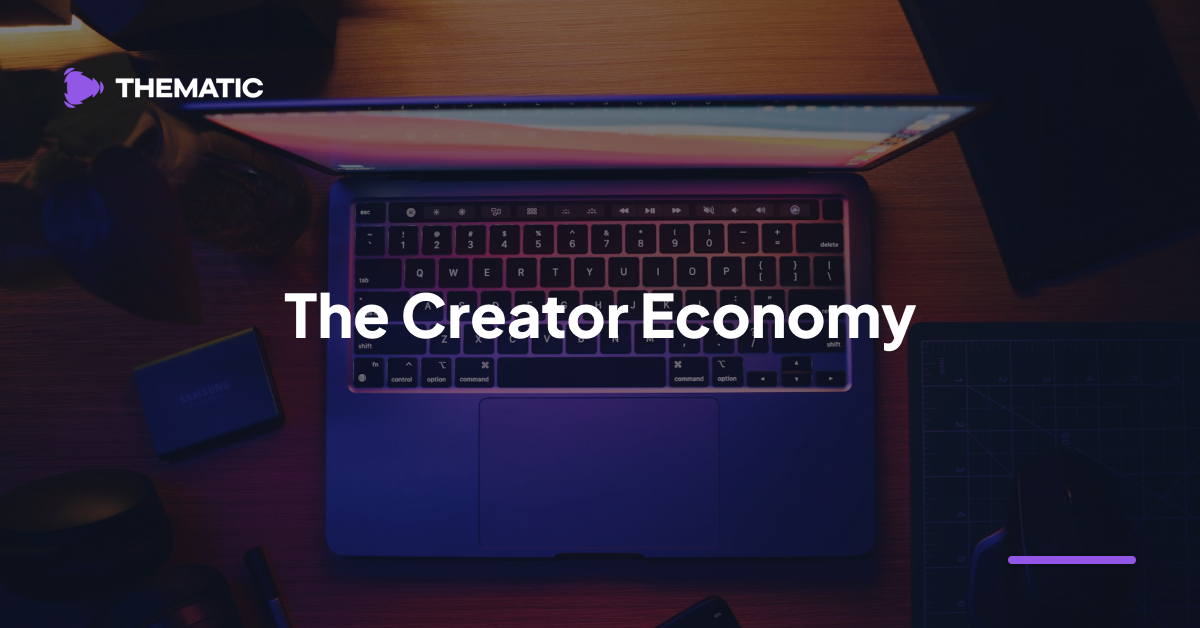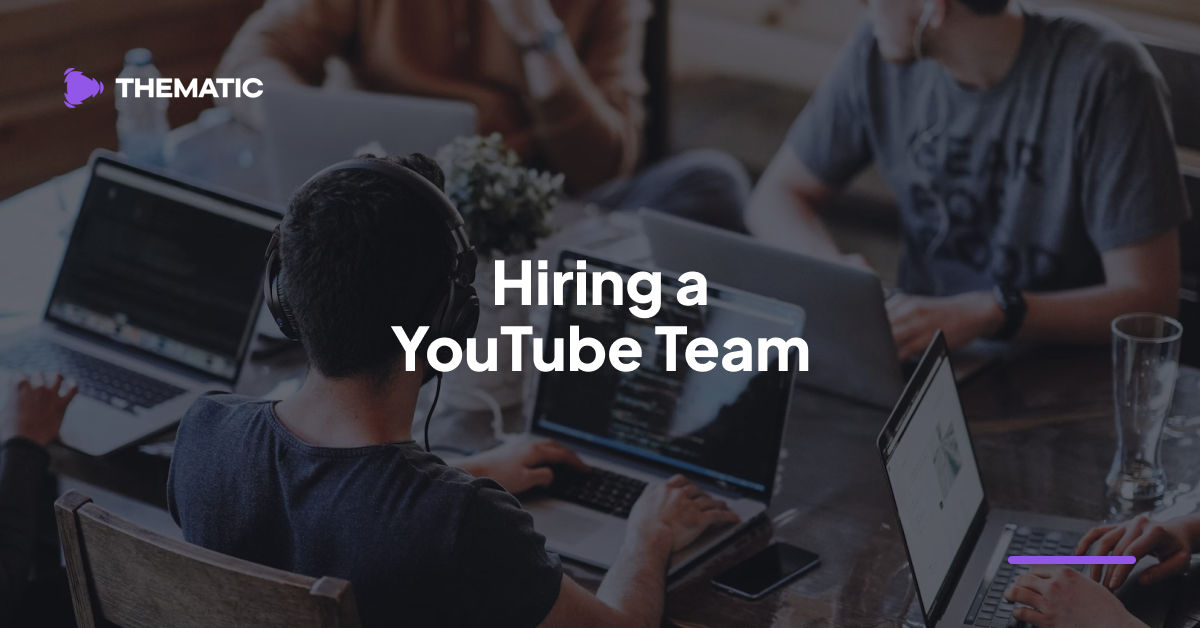
The internet has given rise to a new kind of entrepreneur: the creator-founder, often called a creatorpreneur. These are content creators who have transformed their digital influence into scalable businesses, building tools, products, and communities that shape the creator economy itself.
This article explores how we got here, why creators are becoming founders, and what this shift means for the future of work, media, and entrepreneurship. Along the way, we’ll highlight the journeys of influential creator-founders like Jack Conte (Patreon), John & Hank Green (VidCon, Study Hall), and Michelle Phan (Ipsy, EM Cosmetics, Thematic), while answering the key questions today’s aspiring creators are asking.
Table of Contents
- What is a Creator-Founder (Creatorpreneur)?
- A Brief History of Creator-Founders
- From a One-Person Show to a Scalable Business
- The Evolution of the Creator Economy
- The Rise of Creator-Founders
- The Future of Creatorpreneurs
- FAQs about Creator-Founders
What is a Creator-Founder (Creatorpreneur)?
A creator-founder (or creatorpreneur) is a content creator who expands beyond making videos, podcasts, or posts and builds a business around their influence. This could mean launching a brand, starting a tech platform, developing digital products, or creating services that support other creators.
Why it matters:
- More creators are shifting from “influencer-for-hire” to entrepreneurs with ownership of their audience, tools, and revenue streams.
- The creator economy is projected to surpass $480 billion by 2027 (Goldman Sachs).
- Over 50% of Gen Z consumers say they’ve purchased from a brand started by a creator-founder (Morning Consult).

A Brief History of Creator-Founders
To understand how creators became founders, we have to go back to YouTube’s early days.
In 2005, the first YouTube video (“Me at the zoo”) felt more like a quirky home movie than the start of a media revolution. The platform quickly became known for viral moments: Keyboard Cat, Chocolate Rain, David After Dentist. It was entertainment, but it wasn’t yet an industry.
But for marginalized communities, YouTube offered something traditional media didn’t: representation. Asian American creators like Wong Fu Productions, Michelle Phan, NigaHiga, KevJumba, Kina Grannis, and David Choi built massive followings by telling stories absent from mainstream channels.
In 2007, YouTube’s Partner Program changed everything by letting creators share ad revenue. Suddenly, creating online wasn’t just a hobby – it could be a career. By the early 2010s, figures like Gary Vee, Bo Burnham, John & Hank Green, Michelle Phan, and even Justin Bieber leveraged YouTube not just for fame, but as a launchpad for entrepreneurial ventures.
This was the birth of the creator-founder movement.
From a One-Person Show to a Scalable Business
Most creators begin as one-person teams: scripting, filming, editing, uploading, engaging. Like early-stage founders, they do it all.
But the creator economy has shifted expectations. Being a creator isn’t just a passion project anymore – it’s a business model.
To succeed long-term, creators need to:
- Build teams (editors, managers, strategists).
- Develop systems (content calendars, monetization strategies).
- Diversify income streams (ads, merch, memberships, courses, brand deals).
The transition from creator to creatorpreneur often happens when creators realize that audience attention is leverage. With the right infrastructure, that leverage can scale into companies, products, or platforms, just like a startup.
The Evolution of the Creator Economy
Not long ago, it was unthinkable that a teenager with a smartphone could build a global brand. Today, it’s normal.
The rise of platforms like YouTube, Instagram, TikTok, and Twitch, combined with creator tools like Canva, smartphones, and editing software, has given anyone the ability to produce, distribute, and monetize content at scale.
This democratization has led to:
- Entirely new career paths (full-time YouTubers, Twitch streamers, Substack writers).
- New business models (subscriptions, direct fan funding, digital products).
- Global cultural impact (influencer-driven trends, viral moments, new communities).
Take the story of AroundMeBD, a YouTube channel from Bangladesh. What began as simple videos of villagers cooking together turned into a thriving business. Ad revenue now funds food costs, pays community members, and even builds local infrastructure like parks.
This is the power of the creator economy: turning storytelling into sustainable impact.
The Rise of Creator-Founders
As the creator economy matured, some creators stopped waiting for tech companies or brands to solve their problems. Instead, they became founders themselves, building companies that reflect the creator perspective.
Jack Conte: Patreon
As one-half of the band Pomplamoose, Jack Conte knew firsthand how hard it was to earn a living from YouTube’s ad model. His solution? Patreon, a membership platform that lets fans directly support creators.
Today, Patreon supports over 250,000 creators, powering sustainable income for musicians, podcasters, artists, and more
“Patreon exists because when creators are paid, they can create more amazing things”
Jack Conte (What is Patreon and How Does it Work?)
John and Hank Green: VidCon, Study Hall
The Vlogbrothers, John and Hank Green, didn’t just build YouTube audiences – they built infrastructure for the community.
- VidCon (founded in 2010) gave creators and fans a place to connect IRL. It grew so large it was acquired by Viacom.
- In 2023, the brothers partnered with ASU and YouTube to launch Study Hall, a program helping students navigate higher education with approachable, low-cost resources.
“We wanted to get as much of the online video community together, in one place, in the real world for a weekend. It’s a celebration of the community, with performances, concerts, and parties; but it’s also a discussion of the explosion in community-based online video.”
Hank Green (VidCon Questions Answered)
This is what creator-founders do: identify gaps in culture, education, and community, then build solutions.
Michelle Phan: Ipsy, EM Cosmetics, Thematic
Few creators embody the creatorpreneur mindset like Michelle Phan.
After building one of YouTube’s most successful beauty channels, she co-founded Ipsy (a subscription beauty brand now valued over $1 billion) and EM Cosmetics.
But her most personal venture was Thematic, a peer-to-peer music licensing platform. The idea came after she faced a copyright lawsuit over music she thought was cleared. Instead of accepting broken industry systems, Michelle built a community-driven solution that helps creators use copyright-safe music while supporting artists.
“I’ve always been very adamant about creating tools, formats, and infrastructures that can help make the lives of creators easier”
Michelle Phan (TUBEFILTER)
The Future of Creatorpreneurs
The trajectory is clear: the next generation of startups won’t just come from Silicon Valley – they’ll come from YouTube, TikTok, and Instagram.
We’re entering a future where:
- Creators build the tools they wish they had.
- Audiences fund products directly, bypassing gatekeepers.
- Communities drive innovation, not corporations.
As more creators shift from influencers to entrepreneurs, the creator-founder model will redefine industries, from education and finance to fashion and entertainment.
FAQs About Creator-Founders
As the line between content creators and entrepreneurs continues to blur, many people have questions about what it really means to become a “creatorpreneur.” Below are some of the most common questions (and detailed answers) to help clarify how creators are founding businesses and shaping the future of the creator economy.
What is a creatorpreneur?
A creatorpreneur is a content creator who builds a business around their audience, influence, and creative work.
Instead of relying solely on brand deals or ad revenue, a creatorpreneur develops products, services, or companies that provide long-term sustainability. This could mean launching a brand (like a clothing line, beauty product, or digital course), starting a tech platform, or creating agencies and production companies.
The key distinction is that creatorpreneurs treat their creative influence as the foundation of a scalable business, much like traditional founders, but with a direct-to-community advantage.
How is a creatorpreneur different from a founder?
In many ways, they are the same – both are entrepreneurs building something from the ground up. The main difference is the starting point: a founder often begins with an idea, prototype, or problem to solve, while a creatorpreneur starts with an audience and leverages that influence to fuel their business.
For example, a traditional founder might build a SaaS company to solve workflow inefficiencies, while a creatorpreneur might launch a productivity app because their followers consistently ask how they manage their creative schedule.
Increasingly, the two paths overlap, with many creatorpreneurs transitioning into “traditional” founders and vice versa.
What are some examples of successful creatorpreneurs?
Some well-known creatorpreneurs include:
- Emma Chamberlain, who transformed her YouTube success into Chamberlain Coffee, a direct-to-consumer lifestyle brand.
- MrBeast (Jimmy Donaldson), who expanded beyond YouTube into Beast Burger and Feastables, creating scalable companies rooted in his massive online community.
- Michelle Phan, an early YouTube beauty pioneer who went on to co-found Ipsy, one of the biggest beauty subscription services.
- Ali Abdaal, who leveraged his educational YouTube channel to build a multimillion-dollar online course business.
These examples show the wide range of possibilities – from physical products to media companies to tech platforms.
Why are creators becoming founders now?
The timing comes down to three major shifts:
- Diversification needs – Relying solely on platforms like YouTube or TikTok is risky. By creating their own businesses, creators build sustainable income and control their future.
- Mature creator economy infrastructure – Tools for monetization, distribution, and commerce make it easier than ever for creators to build businesses.
- Audience-driven trust – Consumers trust creators more than traditional brands, which gives creators a built-in competitive edge.
How can a creator become a founder?
The transition usually happens in steps:
- Identify audience needs – What questions do followers constantly ask? What problems keep coming up in your community?
- Test small products or services – Launch a digital download, paid newsletter, or small merch drop to gauge demand.
- Scale into a full business – Once demand is proven, invest in building a brand, securing partners, or even raising funding.
- Think beyond content – While content remains the marketing engine, true creatorpreneurs develop teams, systems, and business models that can grow independently of daily posting.
What industries are creatorpreneurs moving into?
Creator-founders are expanding into nearly every industry, but some of the most common include:
- Beauty and fashion (cosmetics, apparel, accessories)
- Food and beverage (coffee brands, snack companies, restaurants)
- Education (online courses, coaching, digital products)
- Media & entertainment (production companies, streaming content, podcasts)
- Technology (apps, SaaS tools, creator economy startups)
Each industry reflects how creators are leveraging their personal expertise and audience trust to disrupt traditional business models.
Join Thematic’s Creator Community
At Thematic, we believe in creators supporting creators. Our platform helps you access copyright-safe music for your videos while empowering artists to reach new audiences.
👉 Get started for free today and join a global community of creatorpreneurs building the future of the creator economy.
We’re excited to see what you create.
Looking for more creator tools and resources? Visit Thematic’s Creator Toolkit for additional resources on creating content – including starting a YouTube channel, thumbnail and channel art templates, best practices, and of course, great royalty free songs to use in your videos for free with Thematic.

This article on the rise of Creator-Founders is brought to you by Thematic Co-Founder & COO Audrey Marshall
With a background in entertainment PR (via Chapman University), Audrey has led digital strategy for music artists, content creators, and brands. From brand campaigns for Macy’s, American Cancer Society, and the L’Oréal luxe family of brands, to music-driven influencer marketing campaigns for Interscope Records, Warner Music, AWAL, and Taboo of the Black Eyed Peas (featuring creators such as Lexy Panterra, Blogilates, Mandy Jiroux, Matt Steffanina, and Seán Garnier), she is an expert in navigating the influencer marketing space. Audrey has also developed and managed some of the leading beauty, lifestyle, and dance channels on YouTube.
Certified across the board with YouTube, Audrey has a specific focus on digital rights management for music assets, running multiple SRAV-enabled CMS. She is passionate about working with other builders in the space for a more transparent digital rights ecosystem.
At Thematic, Audrey leads the product team and oversees operations. She has driven partnerships with leading talent and music companies, including Songtrust, Kobalt/AWAL, Select Management, BBTV, ipsy, and Black Box, and has helped the platform grow to a thriving community of 1M+ content creators who have posted 1.6M+ videos using the platform, driving 60B+ music streams and $120M+ in earned media value for independent music artists.



